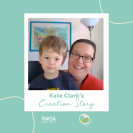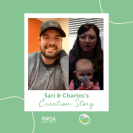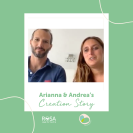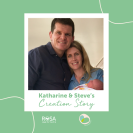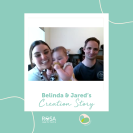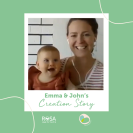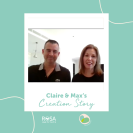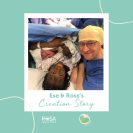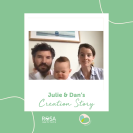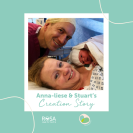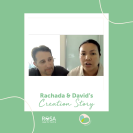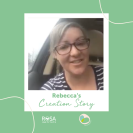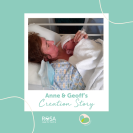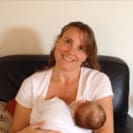Infertility: Effective diagnostic investigations
Once in place, this often missing piece in many couples' fertility puzzle can make all the difference in helping them create a healthy baby of their dreams.
It takes a brand new strategy
10 AM Sydney, Australia GMT +11
10 minutes
Begin a New Chapter


Founder and Director of The Rosa Institute and Harvard University-awarded scholar.
Gabriela Rosa is the founder and director of The Rosa Institute, an organization dedicated to improving clinical results and advancing scientific knowledge in reproductive medicine to help couples create healthy babies, despite previous challenges. Gabriela and her team of clinicians have treated and educated over 142,000 couples and individuals in more than 111 countries through various programs since 2001, such as her flagship Fertility Breakthrough Program™ known for its validated 78.8% live birth rate, its alternative Group Fertility Breakthrough Program™ (the flagship program delivered in shared consultations), and the free, self-paced, and interactive Fertility Accelerator Program™ helping couples fast-track their journey to parenthood. She has translated over two decades of knowledge and experience into four books on natural fertility solutions, including two bestsellers. You can find Gabriela's latest book, Fertility Breakthrough: Overcoming infertility and recurrent miscarriage when other treatments have failed, at quality booksellers. Furthermore, she is also the host of the TalkSex with Gabriela Rosa™ podcast, where reproductive health, science, education, self-discovery, love, and lust meet. She and guest experts explore a holistic conversation around desire, pleasure, and satisfaction, aiming to help create a new path of self-discovery for those on and off the fertility journey. In addition to her work in reproductive treatment, Gabriela is also launching the Wellbeing Within™, a men’s and women’s health program expanding the support The Rosa Institute offers patients beyond fertility treatments. It is designed to help individuals optimize their health at every stage of life, from puberty to meno- / andro-pause and beyond, through a holistic and integrative approach. Like her signature fertility programs, it is underpinned by her unique F.E.R.T.I.L.E. Method®, which stands for Fact-find, Educate, Recommend, Treat, Incubate, Liberate, and End Result. Gabriela has completed clinical research programs, including her Master’s in Public Health (Clinical Effectiveness) degree at Harvard University’s T.H. Chan School of Public Health. In addition, she was awarded The Scholar Award for academic excellence. Currently undertaking the Doctor of Public Health program at Harvard, Gabriela already holds a Master of Science in Medicine (Reproductive Health and Human Genetics) and a Bachelor of Health Science and is trained in numerous health disciplines, including naturopathy, nutrition, and botanical herbal medicine. For updates on Gabriela's latest initiatives, visit www.fertilitybreakthrough.com.
Hope is hard.
Many couples who experience reproductive difficulties are unaware of one of the most unmistakable yet fundamental reasons they continue to struggle on their fertility journey.
This is despite years (and thousands of dollars) of what was supposed to be effective fertility treatment.
Even moderately inclusive testing (encompassing both male and female contributing diagnostic factors to reproductive difficulties) is often missing for the vast majority.
In having treated thousands of couples to overcome infertility and recurrent miscarriage effectively, I have seen how adequate diagnosis of the root causes of infertility and miscarriage is a majorly underutilized strategy in the effective treatment of reproductive challenges.

This is for you if you still have a deep sense that something has not been addressed yet despite having every test imaginable and trying different treatments.
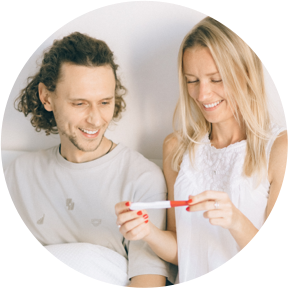
Where: Gabriela Rosa Facebook Page
When: Wednesday, April 20, 2022, at Sydney, Australia GMT+11
Duration: Time with Time Q&A
I look forward to connecting with you soon.
With love,
Gabriela Rosa
DrPH (cand.), MPH (CLE), MScM (RHHG), BHSc (ND)
Founder, Clinical Researcher, Harvard University awarded scholar and fertility specialist.
Clinician since 2001.
Patient Stories
“You gave us hope when we had none, which is why we have our family.”
“Our three precious miracles are testaments to our determination and trust in Gabriela Rosa.”
“No more failed IVF cycles! The time we saved is priceless.”
“been trying for three years, still not pregnant…”
“Thank you for helping us create miracles Gabi!”
“Seven years it took us to conceive him”
“The results have been life changing for us. Thank you Gabriela!”
“Doctor thinks that without Gabriela I would never have got pregnant!”
“Gabriela’s program ended 6 years of infertility for us. Thank you Gabriela!”
“ I lost 5 babies before working with Gabriela”
Pregnant at 51: She’s now three and I’m thinking I’m going to have another one
“I tried to get pregnant for three years…”


